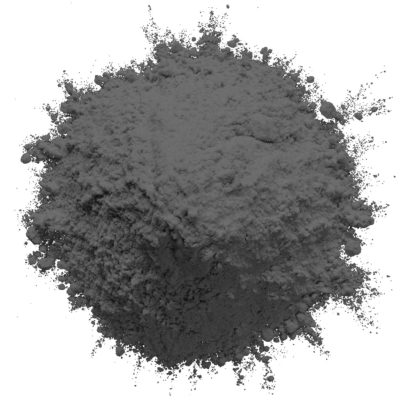Zinc phosphate is an important ingredient used in anti-corrosive paints. It is widely recognized for its ability to protect metal surfaces from rust and corrosion, which is a common problem when metal is exposed to air and moisture. Corrosion can cause severe damage to metal structures, machinery, and vehicles, so using a protective paint that contains zinc phosphate can help extend the lifespan of these items. Once the zinc phosphate conversion coating has been successfully applied to the metal surface, the coating provides an excellent base for powder paint, electrocoat, and liquid paint, water or solvent based.
The primary function of zinc phosphate in anti-corrosive paints is to act as a corrosion inhibitor. When the paint is applied to a metal surface, zinc phosphate forms a protective barrier between the metal and the environment. This barrier helps block the oxygen and moisture that cause metal to corrode. By stopping or slowing down the corrosion process, the paint helps maintain the structural integrity of the metal, reducing the need for costly repairs or replacements.
One of the key reasons why zinc phosphate is so effective in anti-corrosive paints is that it provides long-lasting protection. Unlike some other anti-corrosion pigments, zinc phosphate continues to protect the metal surface for a long time after the paint has been applied. This makes it ideal for use in paints for industrial and marine environments, where metals are often exposed to harsh conditions, such as saltwater, chemicals, and high humidity. Whether it’s used on bridges, ships, or pipelines, zinc phosphate helps ensure that the metal remains free from rust for many years.
Zinc phosphate works by creating a layer of passivation on the metal surface. This passivation layer is a thin film that slows down the chemical reaction between the metal and corrosive elements like oxygen and water. The zinc phosphate reacts with the metal to form a stable and protective coating, which helps seal off any small cracks or imperfections in the metal surface. This added layer of protection makes it more difficult for corrosion to start, even in areas where the metal might be exposed to tough environmental conditions.
In addition to its anti-corrosive properties, zinc phosphate also improves the adhesion of the paint to the metal surface. Good adhesion is critical in ensuring that the paint stays on the metal and doesn’t peel or chip away. Zinc phosphate helps the paint bond better to the surface, creating a stronger and more durable finish. This not only improves the appearance of the painted surface but also makes sure that the anti-corrosion protection remains effective for a longer period.
Another benefit of using zinc phosphate in anti-corrosive paints is that it is a non-toxic alternative to older anti-corrosion pigments, such as red lead and chromates. These older pigments were effective at preventing rust but posed significant health and environmental risks. Zinc phosphate, on the other hand, is much safer to use and complies with modern environmental regulations. It is a more environmentally friendly option that still offers excellent protection against corrosion.
Zinc phosphate is also highly versatile, meaning it can be used in a wide range of paint formulations. It is suitable for various types of projects and applications. Whether used in industrial coatings, automotive paints, or marine paints, zinc phosphate can provide the necessary protection against corrosion while also ensuring the paint performs well in other areas, such as durability and coverage.
Moreover, zinc phosphate helps in improving the film strength of the paint. When used in anti-corrosive paints, it increases the thickness and toughness of the paint layer, making it more resistant to wear and tear. This is especially important in environments where the painted surface is exposed to physical stress, such as abrasion, impact, or vibration. The added strength provided by zinc phosphate ensures that the paint remains intact and continues to protect the metal underneath.
In conclusion, zinc phosphate is a highly effective and essential ingredient in anti-corrosive paints. Its ability to prevent rust, enhance adhesion, provide long-lasting protection, and offer a non-toxic alternative to harmful pigments makes it an excellent choice for a wide range of applications. Whether it’s used in industrial, automotive, or marine paints, zinc phosphate plays a crucial role in safeguarding metal surfaces from corrosion and prolonging their lifespan.








Leave a Reply